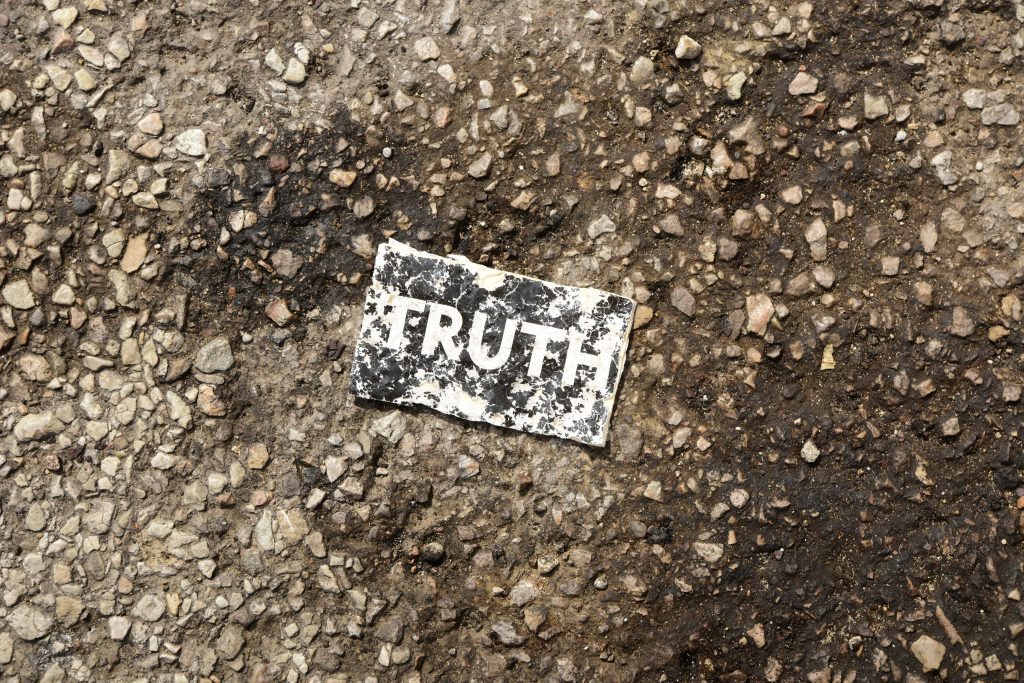This past Sunday we rounded up our series on the Apostles’ Creed by reflecting on the importance of this ancient confession of faith for us today. We returned to where we began and noted that we are living in what many have called a ‘Post Truth’ culture, where questions around what is true and who can be trusted have become some of the most pressing issues of our time. The actual term ‘Post Truth’ became used on a popular level around 2016 during two of the most polarising and divisive cultural events to have happened in western culture for a while, the American election and Brexit. I would love to be able to say that things have gotten much better since then and that our societies are much more united and healthier today, but I’m not sure this is the case.

Some people, much smarter than me, are suggesting that part of the reason for the fracturing and splintering of Western culture is due to the loss, or the absence, of a unifying story that holds it all together. For when we begin to peel back the layers of culture, beyond what can be seen (art, architecture, behavours etc.) and into the unseen (values, worldviews etc.), we eventually hit the stories that shape undergird all these other elements.
For a number of years now, scholars from a number of different disciplines, have been trying to remind us of the importance of ‘stories’ and ‘narratives’ for how we make sense of the world and answer the big questions of life. Consider the following quotations…
‘the way we understand human life depends on what conception we have of the human story. What is the real story of which my life story is a part’?
Leslie Newbigin
I can only answer the question, “What am I to do?” if I can answer the prior question, ‘Of what story . . . do I find myself a part’?
Alasdair MacIntyre
Newbigin, Macintyre, and others suggest that it is the stories that we tell and believe to be true that help us to answer questions such as, ’is there a god’? What is the meaning and purpose of life’? ‘What happens after we die’? What is the difference between right and wrong, good and evil’?

When there is no story to unite around, no shared narrative to answer all these deeply human questions, then it opens the door to a million other stories, which will offer all sorts of competing claims. If a shared story unites a community around certain identities, values, and behaviours, then the loss of that story creates a ripple effect of disorientation and confusion into these same areas. It’s like the breaking of ice or glass at a certain point that then fragments, cracks, and splinters in all directions. When there is no longer a truth to hold and be accountable to, we each decide for ourselves what ‘our truth’ is and are then encouraged to ‘be authentic and to live our truth’; as long as it doesn’t hurt anyone. Post-Truth ends up splintering into a billion ‘my truths’.
This is the environment, the landscape, within which we have to try and figure out what it means to be a follower of the one who claims to be ‘the way, the truth, and the life’! In a few follow up blog posts I will begin to offer a part of an answer to these questions. So stay tuned!

